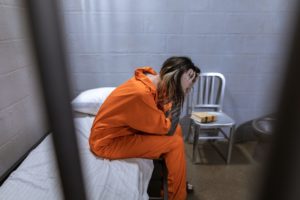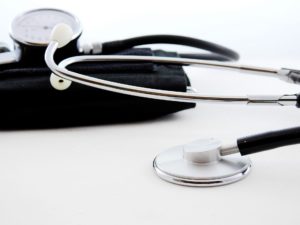Medical Care While Incarcerated
By Lindsay B. – Research Intern
States are legally required by the constitution to provide people in prisons with necessary healthcare. Incarcerated individuals have reported receiving medical care for specific health issues and injuries more than for general health maintenance. While prison systems are seemingly responsive to the healthcare needs of those incarcerated, former and current offenders have expressed their negative experiences with medical care in the criminal justice system. Mallik-Kane et al. (2018) examined people’s experiences with healthcare in the criminal justice system and noted a common lack of individualized services along with many individuals who perceive their treatment as lesser or disrespectful due to their position in the criminal justice system. Similarly, inmates have difficulty obtaining pain medications or other necessary but potentially addictive medication, with many incarcerated individuals explaining that the professionals think they are fabricating symptoms to receive certain medications.
 Glenn Ellis with The Philadelphia Tribune discusses how infectious diseases such as tuberculosis and influenza can spread rapidly in prisons and jails due to unsanitary and crowded conditions. This is especially problematic with the recent COVID-19 pandemic. It is unfortunate that these unsanitary conditions are preventable to an extent, because when an individual is ill, they are often required to pay a fee from their own money, which they receive at less than fifty cents an hour. Chronic health conditions are also unfortunately common among incarcerated individuals. Far too often, individuals with chronic or recent health conditions are made to wait for treatment, and sometimes flat-out denied. Similarly, necessary prescriptions are not refilled routinely. Waiting for medical care or being denied medical care or prescription medication has been described as a form of cruel and unusual punishment by some legal professionals. It is tragic that for some, a short-term sentence can turn into a death sentence due to lack of medical attention and care.
Glenn Ellis with The Philadelphia Tribune discusses how infectious diseases such as tuberculosis and influenza can spread rapidly in prisons and jails due to unsanitary and crowded conditions. This is especially problematic with the recent COVID-19 pandemic. It is unfortunate that these unsanitary conditions are preventable to an extent, because when an individual is ill, they are often required to pay a fee from their own money, which they receive at less than fifty cents an hour. Chronic health conditions are also unfortunately common among incarcerated individuals. Far too often, individuals with chronic or recent health conditions are made to wait for treatment, and sometimes flat-out denied. Similarly, necessary prescriptions are not refilled routinely. Waiting for medical care or being denied medical care or prescription medication has been described as a form of cruel and unusual punishment by some legal professionals. It is tragic that for some, a short-term sentence can turn into a death sentence due to lack of medical attention and care.
The prison population began to spike in the 1970s, and this upwards trend has continued. Due to the ever-growing number of people incarcerated, the criminal justice system has had to provide more and more medical services in general, but they also have had to prepare for a large number of offenders reaching old age, which is often accompanied with health complications. A common ailment experienced by the elderly is cancer. Within the criminal justice system, the first mild symptoms of cancer are not prioritized, meaning that the cancer is eventually detected when it starts to have a more significant effect. The combination of old age, illness, and medical access is described by Erik Hess as “a recipe for neglect and abuse”.
 If you have a loved one or family member suffering from an untreated medical issue, there are some things you can do to advocate for their care as described by Glenn Ellis with The Philadelphia Tribune. First, ask your or your loved one’s primary care doctor to communicate directly with their correctional healthcare provider. You can also contact the correctional healthcare providers directly and inform them of your loved one’s medical problem. If for some reason you cannot reach these healthcare providers, the department of corrections website for your state should have the contact information for the medical director’s office, which can help you receive more specific assistance.
If you have a loved one or family member suffering from an untreated medical issue, there are some things you can do to advocate for their care as described by Glenn Ellis with The Philadelphia Tribune. First, ask your or your loved one’s primary care doctor to communicate directly with their correctional healthcare provider. You can also contact the correctional healthcare providers directly and inform them of your loved one’s medical problem. If for some reason you cannot reach these healthcare providers, the department of corrections website for your state should have the contact information for the medical director’s office, which can help you receive more specific assistance.
Embedded Links
https://www.urban.org/sites/default/files/publication/96386/health_care_after_incarceration.pdf